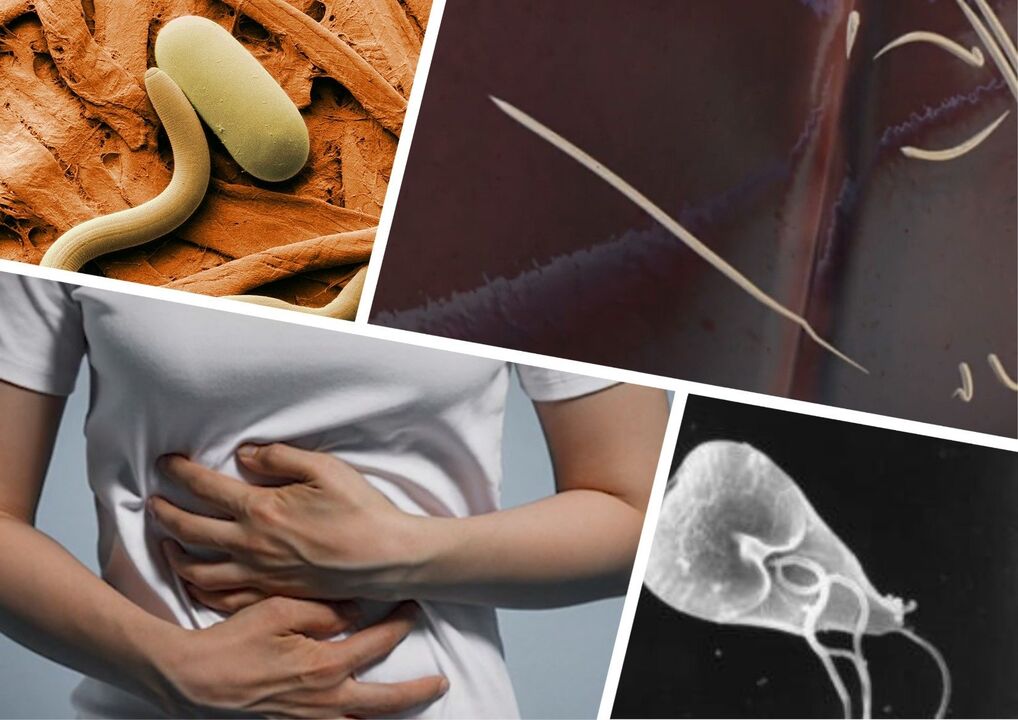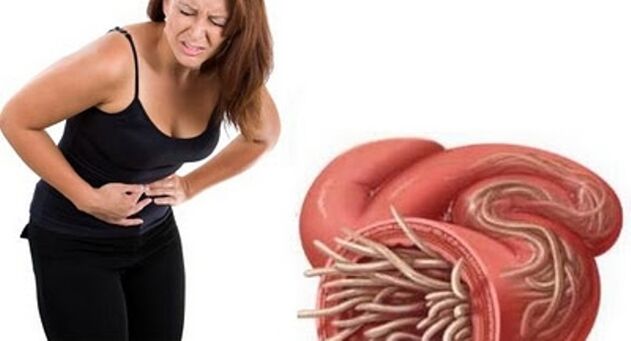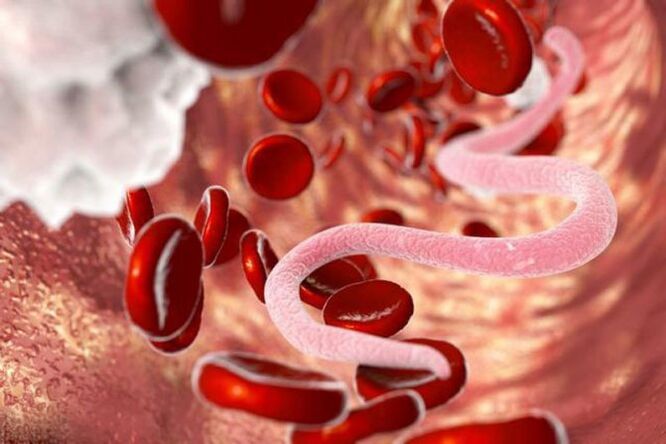
Worms - parasites that live in the body (most often in the intestines) of humans and animals.You can get infected everywhere: according to doctors, about 80% of people are infected with helminths.
In order to effectively treat worms in adults, medication must be selected, taking into account the type of parasites living in the body.Otherwise, the treatment will be ineffective and may harm the patient's health.
Where and how can you become infected with worms?
You can take the infection everywhere: in nature, at a catering restaurant and even at home.Helminants are transmitted through unwashed hands, poorly washed vegetables and fruits, especially those that grow in the ground.
Meat and fish that have suffered insufficient heat treatment can also cause infection.
Helminthosis is transmitted from a sick person to a healthy person - by handshake or contact with saliva.More often, worms are found in children: they are infected through common toys, unwashed hands.
If the family has a child with helminthiasis, all adults should also undergo prevention in order not to become a source of re -infection for the child after recovery.
You can get infected with a pet.Therefore, cat and dog anthrove is required regularly - every three months.And after contact with stray animals, wash your hands well.
Symptoms that indicate the presence of parasites
The signs of the presence of worms in the intestine are a sharp change in body weight (weight loss or weight gain due to metabolic disorders), disorders of the digestive system that are easy to confuse with acute or chronic gastrointestinal disease.The main signs that show that a person has a helminth invasion:

- Stool disorder - diarrhea, constipation, liquid stools (when the intestines are emptied no more than 2 times a day, but the chair is not decorated).
- Swelling, colic.
- Nausea.
- Vomiting.
- Lack of appetite.
- Pain and cramps in the intestine.
In the process of vital activity, worms distinguish toxins that can affect people differently.In some, they cause frequent headache, in others - irritability or disorder of food behavior, for others - skin rashes, all allergies.
In any case, against the background of helminth invasions, the protective functions of the body are reduced, the immunity weakens.Such a person is more likely to suffer from colds.
Worms: What types of parasitizes in humans?
Not all types of helminths are dangerous to humans: some of the parasites live only in animal organisms.
About 70 types of helminths are parasitized in people who are divided into 3 main groups:
Roundworms
Several centimeters are reached in length, in the transverse area their body has a circular shape.This is one of the most common types of helminths.The Nematod group includes pincors and ascarides, which are most often diagnosed, especially in children.This also includes Blazoles.They live mainly in the gut.
Tape
The length can reach 18 m, the average length is 1-5 m.The body is flat, the head has a suction cup that is attached to the intestinal mucosa.These are ribbons and tapeworms, which are rooted mainly in the small intestine, but can be established in other organs.Their characteristic: Helmint itself, not the larva itself, falls into the human body: it matures in the body of an intermediate host.They are infected with animals as well as using meat and fish that have suffered insufficient heat treatment.
Flat
They have a wide and flat body, reaching up to a few inches in length, less often one and a half meters.These are different types of bias, bikomer, trematode.They can precipitate in the channels (bile, tear ducts and in almost all organs).
How to determine the presence of helminths?

The easiest way is to pass the stool analysis.But for accurate diagnosis, you need to analyze 3-4 times, since during a period when the parasites are not active, it is quite difficult to detect their presence.
Antibodies are produced on some types of helminths in the blood.Through a blood test you can determine the presence of these markers and determine the type of worms.But for that you will need to take several tests - for every expected look.
Who treats Helminthias?
The main specialists in Helmint are a specialist in infectious disease of the parasitologist.But the full -time parasitologist is far from in every clinic: usually these specialists work as regional clinics and research institutes.
A specialist in infectious diseases or gastroenterologist based on the test results may prescribe a treatment regimen.This will help you choose the best antimiles and safe agents for a person who will help to quickly drive worms without consequences for the body.
The suicide in this case is quite dangerous: the tablets of the worms are quite toxic, they have many contraindications.If the choice of worms type, the drug will at least be ineffective.If the dose is exceeded, antelminics can cause serious poisoning.



























